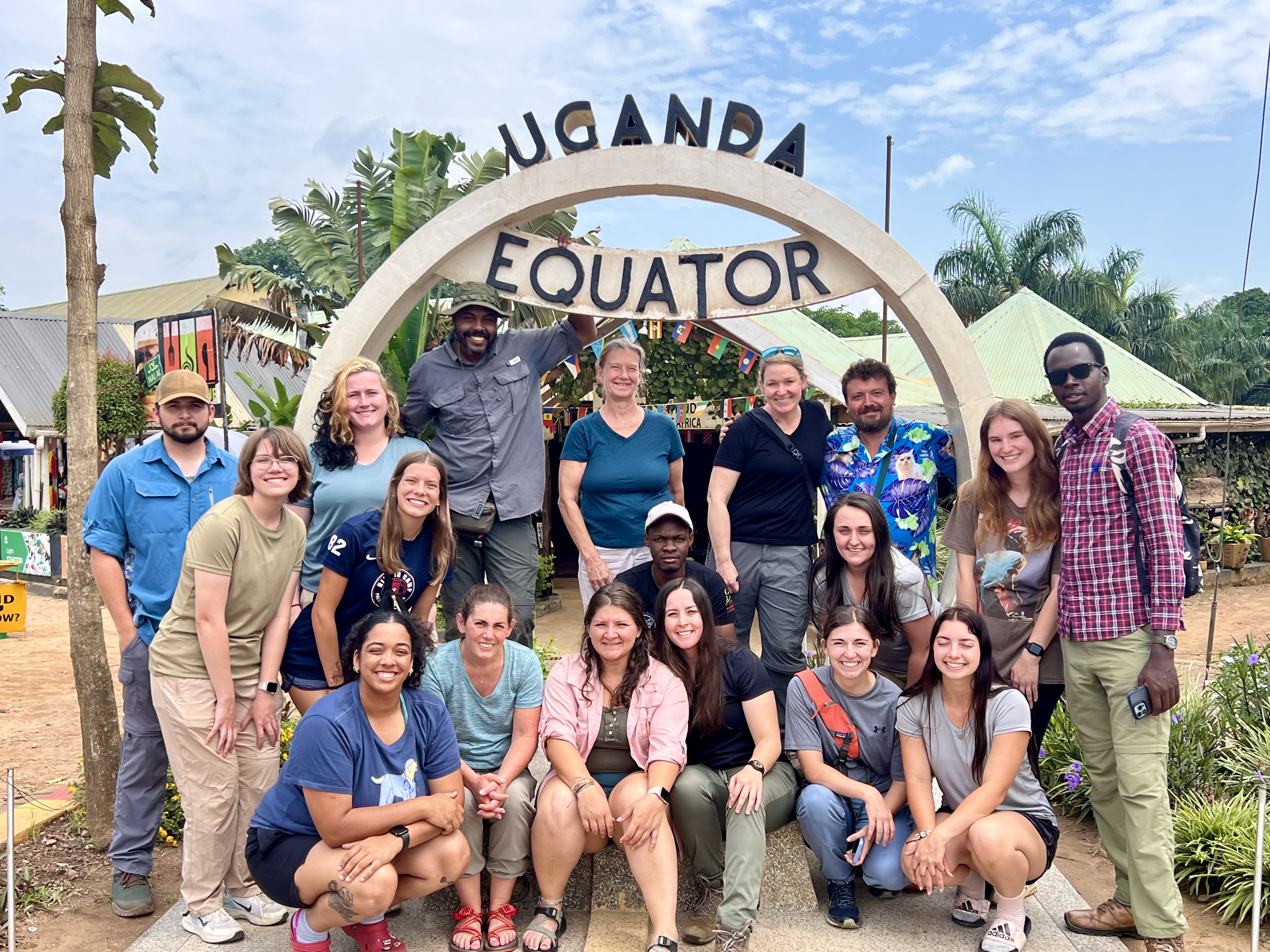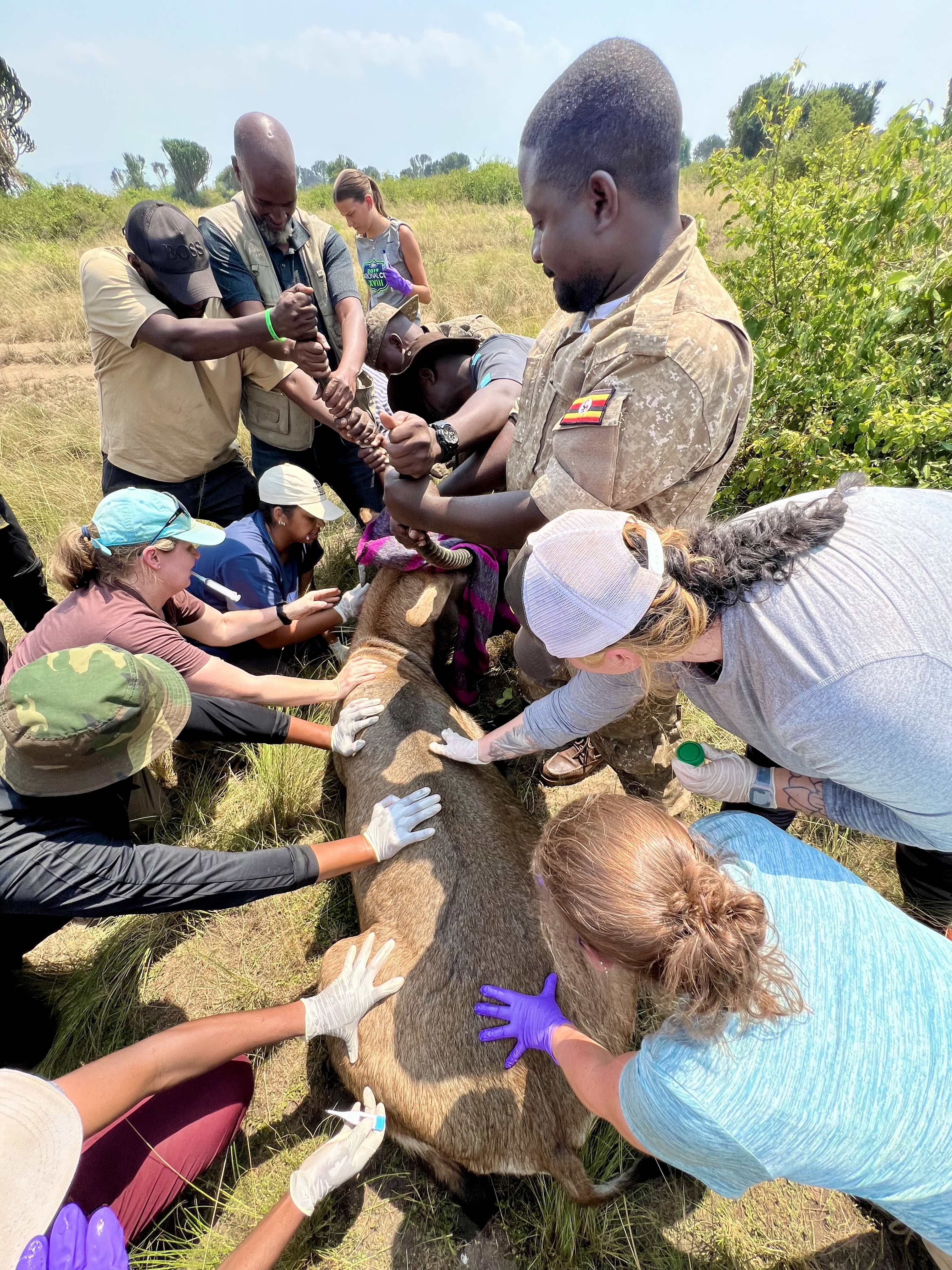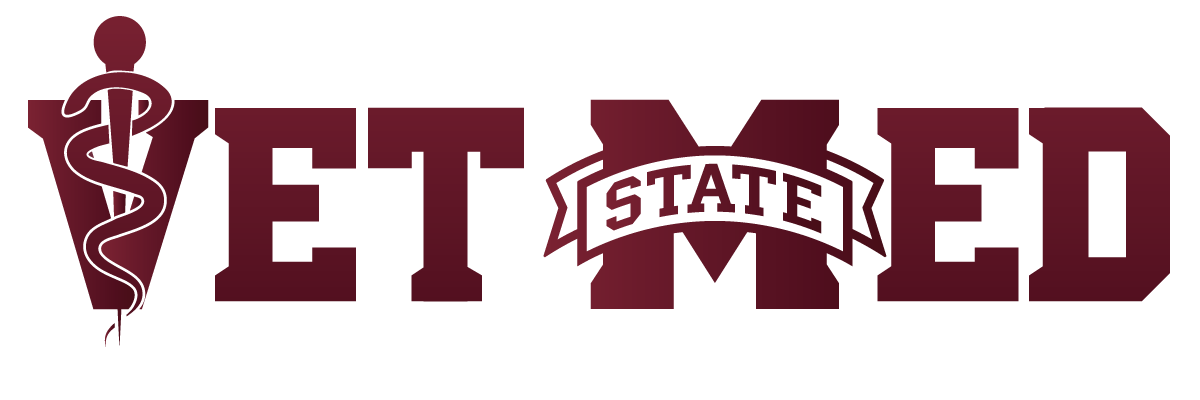 Tropical Veterinary Medicine and One Health Study Abroad in Uganda
Tropical Veterinary Medicine and One Health Study Abroad in Uganda
This is a study abroad course held in Uganda. It is open to DVM, undergraduate, and graduate students at Mississippi State and other US academic institutions. There are a limited number of participants allowed each year.
This course is delivered in collaboration with Makerere University in Kampala Uganda and focuses on animal production and health management, wildlife health, disease surveillance, public health, food safety and security, as well as other One Health principles while infusing multicultural experiences. Students participate in experiential field trips with hands-on experiences at national parks, farms, field experiment stations, and other sites of interest. A cultural workshop is also included at the end of the trip.
Learn More from the Office of Study Abroad
 For more information about this study abroad program, please contact Dr. Graham Rosser, Dr. Kristen Fizzano, or Dr. Gretchen Grissett.
For more information about this study abroad program, please contact Dr. Graham Rosser, Dr. Kristen Fizzano, or Dr. Gretchen Grissett.
Preparations for Study Abroad in Uganda
This course is a prerequisite for the Tropical Veterinary Medicine and One Health study abroad course in Uganda. It covers a broad variety of topics to prepare students for international travel and experiences. The course is open to DVM, undergraduate, and graduate students at Mississippi State and other US academic institutions.
For more information about this study abroad program, please contact Dr. Graham Rosser, Dr. Kristen Fizzano, or Dr. Gretchen Grissett.
Funding for Study Abroad in Uganda
The MSU CVM Uganda Study Abroad Funding Support Ad Hoc Committee reviews applications and makes recommendations to the CVM Office of the Dean for funding support of veterinary students currently enrolled at Mississippi State University who are participating in the Tropical Veterinary Medicine and One Health in Uganda study abroad course. Students who wish to apply for funding support to participate in the course must complete the application form and submit their Verification of Financial Aid letter available through Banner.
Fish Innovation Lab

The Feed the Future Innovation Lab for Fish (Fish Innovation Lab) is a U.S. Agency for International Development (USAID)-funded program that aims to improve nutrition and livelihoods of vulnerable people in developing nations by improving availability and access to fish. This can be accomplished by improving aquaculture (fish farming) and/or by improving sustainable fisheries (harvesting of fish from natural marine or freshwater systems). The Fish Innovation Lab conducts applied research and capacity-building (extension) projects in developing nations to improve aquaculture and fisheries technologies, reduce and mitigate risks to these industries, and improve human outcomes from them. Countries with current Fish Innovation Lab projects include Bangladesh, Cambodia, Ghana, Kenya, Malawi, Nigeria, and Zambia.
Because the Fish Innovation Lab is hosted by the Mississippi State University College of Veterinary Medicine, veterinary students here have the unique opportunity to engage and learn about international development and food security by participating in its programs. Students could participate in Fish Innovation Lab projects in fish health and biosecurity. Depending on student interest, students could also participate in projects on improving feeds for fish, improving fish genetics, developing aquaculture technology, optimizing fish yields from harvesting oceans or freshwater, food safety, or improving human nutrition through fish.
Project opportunities for students are possible in countries where the Fish Innovation Lab works. For more information about these opportunities, please contact the Fish Innovation Lab Director Dr. Mark Lawrence, Director of the Fish Innovation Lab.
The MSU-FAO Partnership
 The Food and Agriculture Organization (FAO) of the United Nations contributes to international efforts to defeat hunger and improve local economies by helping its member countries modernize and improve agriculture, forestry, and fisheries practices. Mississippi State University has developed a unique partnership with the FAO which will allow our students (undergraduate, graduate and/or professional) to more expediently apply for positions within the organization and obtain partial funding to support their activities. Participating students will gain valuable insight into global activities supporting the goal of alleviating hunger worldwide, while gaining experience in the development and maintenance of public-private partnerships.
The Food and Agriculture Organization (FAO) of the United Nations contributes to international efforts to defeat hunger and improve local economies by helping its member countries modernize and improve agriculture, forestry, and fisheries practices. Mississippi State University has developed a unique partnership with the FAO which will allow our students (undergraduate, graduate and/or professional) to more expediently apply for positions within the organization and obtain partial funding to support their activities. Participating students will gain valuable insight into global activities supporting the goal of alleviating hunger worldwide, while gaining experience in the development and maintenance of public-private partnerships.
All students must apply to the FAO as a program volunteer at the organization’s website. Once the application is completed, the student may apply to the Mississippi State University International Institute for funding considerations. Veterinary students should contact the program liaison at the MSU College of Veterinary Medicine, Dr. Carla Huston (huston@cvm.msstate.edu), for additional requirements and in regard to funding opportunities through the College.
Please note: When applying, students should select their three preferred country locations and not expect to work solely in the FAO Headquarters in Rome, Italy. In addition, while students may indicate their preference for assignments, they may be assigned to any area in the fields of animal health, food safety, public health, and emergency response to support the mission of the organization.
For more information, click here.
More Information
Click below for additional details about MSU CVM Study Abroad programs
